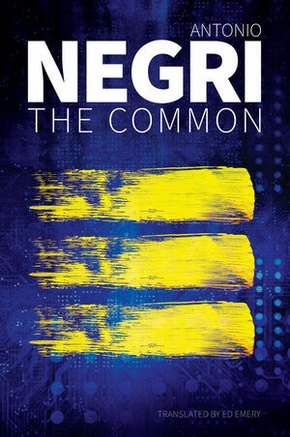
| Verlag | Wiley & Sons |
| Auflage | 2023 |
| Seiten | 208 |
| Format | 15,2 x 22,9 x 1,5 cm |
| Gewicht | 310 g |
| Artikeltyp | Englisches Buch |
| EAN | 9781509544271 |
| Bestell-Nr | 50954427UA |
This final volume in Antonio Negri's new trilogy aims to clarify and develop the 'common' as a key concept of radical thought. Here the term is understood in a double sense: on the one hand, as a collective of production and consumption in which the domination of capital has been completely realized; on the other hand, as the cooperation of workers and citizens and their assertion of political power. The maturation of this duality was the sign of the limits of capitalism in our age; the common showed itself as the active force that recomposed production, society and life in a new experience of freedom.
Today the promise of freedom seems undermined by the very institutions founded to uphold it, as the charters of western democracy seek to prioritize individualism. Negri advocates instead a free society founded on the premise that the good life is to be collectively ordered - in other words, a society that elevates the common. In his vision, giving political expression to those w ho work and produce is the only way of overturning totalitarian exploitation and of enabling every citizen to participate in the development of the city.
Like its companion volumes, this new collection of essays by Negri will be a valuable resource for anyone interested in radical politics and in the key social and political struggles of our time.
Inhaltsverzeichnis:
Preface: From the public to the common
I. Advances
1. State, public spending and the decrepitude of the Historic Compromise
2. Inside the crisis: symptoms of the common
II. The fundamentals
3. In search of Commonwealth
4. The common as a mode of production
5. The law of the common
6. Federalism and movements of the common
7. Disrupt ownership? Common goods and the possibility of law
III. Discussions
8. What are we willing to share?
9. The metaphysics of the common
10. Politics of the common, an interview
11. The common before power. An example
IV. In conclusion
12. From the Commune to the common
